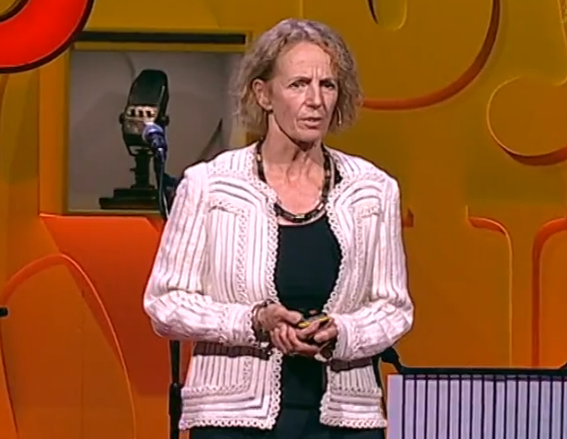(单词翻译:单击)
听力文本
Yet, there is hope. One day a man told me,
然而,他们仍然是有一丝希望的。一天,一个阿富汗人告诉我,
"My future does not look brilliant, but I want to have a brilliant future for my son."
“我的前途并不光明,但是我希望我的儿子能有灿烂的前程。”
This is a picture I took in 2005, walking on Fridays over the hills in Kabul,
这是我在2005年拍的一张照片,那天是周五,我在喀布尔山上散步时拍下了它,
and for me it's a symbolic picture of an open future for a young generation.
对我来说,这是一张有象征意义的照片,象征着年轻一代的远大前程。
So, doctors prescribe medication. And donors are supposed to bring peace by building schools and roads.
作为医生,是要开药方的。捐赠人的责任就是实现和平,重建道路和学校。
Military collect weapons, and depression stays intact.
军队没收了武器,但是绝望仍然在那里。
Why? Because people don't have tools to cope with it, to get over it.
为什么会这样呢?因为人们没有掌握解决、克服绝望的手段。

So, soon after my arrival, I had confirmed something which I had already known;
所以,我一到那里,就证实了一些我之前了解到的信息,
that my instruments come from the heart of modern Europe, yes.
虽然我使用的治疗手段来自先进的欧洲。
However, what can wound us and our reaction to those wounds -- they are universal.
但是,我们可以设想,那些伤害我的,以及我们对创伤的反应,对所有人都是一样的。
And the big challenge was how to understand the meaning of the symptom in this specific cultural context.
最大的挑战是如何去理解症状在这种特殊文化中的特殊意义。
After a counseling session, a woman said to me, "Because you have felt me, I can feel myself again,
在一次咨询中,一位女士对我说,“因为你说出了我的感受,我也重新找回了自己,
and I want to participate again in my family life."
我愿意重新参与到家庭生活中。”
This was very important, because the family is central in Afghans' social system.
这非常重要,因为家庭是阿富汗社会的核心。
演讲介绍
当荣格学派心理分析师英琪·密斯莫尔访问阿富汗时,她看到了战争对阿富汗人内心造成的创伤--普遍的绝望、创伤综合症以及抑郁。然而在这个有三千万人口的国家,只有几十个心理分析师。英琪讲述了她在阿富汗帮助阿富汗建立心理咨询系统,治愈个体乃至整个民族创伤的工作。


